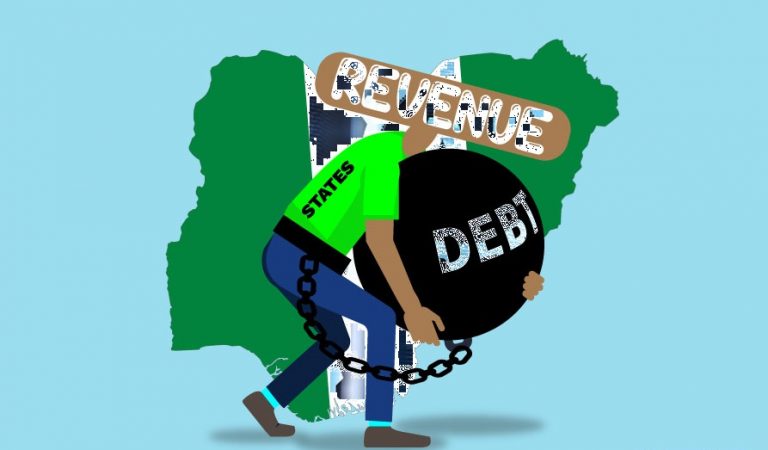
The African Development Bank (AfDB) has sounded fresh alarms over Nigeria’s rising debt burden, warning that the country may spend as much as 75% of its revenues on interest payments alone in 2025—a level that risks choking public spending and stalling economic recovery.
The warning is contained in the AfDB’s 2025 African Economic Outlook, which highlights how countries with seemingly manageable debt-to-GDP ratios can still face unsustainable debt conditions when revenues are persistently low and debt servicing costs rise sharply.
“Nigeria presents a classic case in point. In 2025, the country’s public debt was projected at 47 percent of GDP. In contrast, three quarters of federal government revenues were projected to be spent on federal government interest payments,” the report stated.
Register for Tekedia Mini-MBA edition 19 (Feb 9 – May 2, 2026).
Register for Tekedia AI in Business Masterclass.
Join Tekedia Capital Syndicate and co-invest in great global startups.
Register for Tekedia AI Lab.
This latest caution from Africa’s leading development finance institution comes as President Bola Tinubu’s administration pursues an aggressive borrowing agenda that could push Nigeria’s total public debt above N180 trillion in the coming months.
The Tinubu administration said it is seeking $21.5 billion in new external loans, alongside a N758 billion bond issuance and an additional $2 billion in domestic borrowing, to fund critical infrastructure projects and settle legacy obligations such as pension arrears.
The government has defended the move, citing urgent national needs, including financing infrastructure gaps, modernizing transport systems, completing energy projects, and addressing long-standing public sector liabilities like unpaid pensions. But experts warn that the sheer scale of the proposed borrowing could significantly worsen the country’s debt outlook.
If approved and drawn down, these facilities—especially the dollar-denominated loans—could catapult Nigeria’s total debt stock beyond N180 trillion, up from N144.7 trillion, as of December 2024, according to the Debt Management Office (DMO).
Although the AfDB acknowledges that Nigeria’s debt-to-GDP ratio of 47% may appear sustainable when compared to some advanced economies, it insists that the real concern lies in the country’s weak revenue base, which leaves little room for fiscal maneuverability.
“Debt interest and amortization payments are not necessarily tied to the size of GDP but are made from government revenue,” the report stated, warning that such conditions can create a situation where governments are locked into repaying loans without sufficient funds left for development or essential services.
The Bank further noted that while some African countries benefitted from declining debt ratios between 2022 and 2023 due to favorable interest-growth dynamics, this trend is fragile and could easily reverse if economic growth slows or global interest rates rise. “Reckless fiscal behavior and excessive borrowing, especially on commercial terms, could undermine progress,” it warned.
Foreign Reserves Under Pressure from Debt Payments
New data from the Central Bank of Nigeria (CBN) shows that $2.01 billion was spent on external debt servicing between January and April 2025, a 50% surge from $1.33 billion in the same period in 2024.
Debt servicing accounted for 77.1% of total international payments made by the government in the first four months of 2025, compared to 64.5% in the corresponding period the year before. Overall FX outflows during the period stood at $2.60 billion, with external debt repayment alone wiping out a significant portion of Nigeria’s dollar reserves.
The consequence is a growing crowding out of other critical FX needs, including trade transactions, education remittances, medical tourism, and industrial imports. The country’s reserves were depleted by $3 billion in just four months, largely to service maturing external obligations.
Future Debt Trap Looms
Experts are increasingly warning that unless the Tinubu administration recalibrates its fiscal strategy, Nigeria risks falling into a debt trap, where new loans are simply used to refinance old ones, leaving the country with little to no room for actual investment.
Already, the debt service-to-revenue ratio is among the highest in the world, and the cost of debt—both in naira and foreign currency—continues to rise. The naira’s devaluation since the unification of the FX market in mid-2023 has further inflated the domestic currency equivalent of Nigeria’s external debt, compounding repayment pressures.
The World Bank and International Monetary Fund have previously cautioned Nigeria to increase its domestic revenue mobilization and cut back on non-essential borrowing. Despite these warnings, the Tinubu administration maintains that borrowing remains crucial for delivering on its infrastructure and welfare agenda.
Economists warn that in the short term, these ambitious borrowing plans if pursued without complementary fiscal reforms and transparent execution, could worsen Nigeria’s debt profile, limit capital investment, and strain the economy’s already fragile recovery path.



